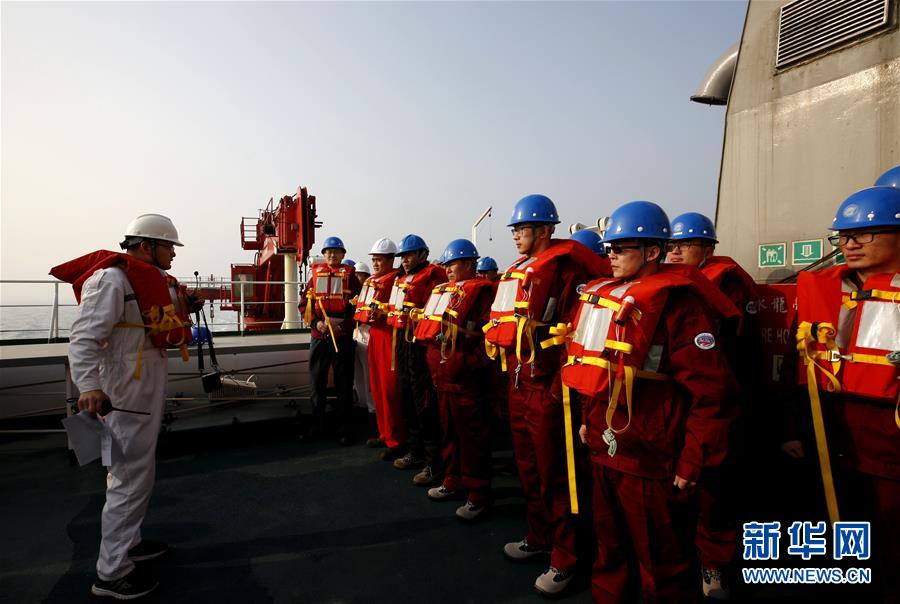
[Answer]: It is a logistics system information resource management and coordination system formed on the basis of management information system according to the needs of logistics management actions.
Warehousing and logistics management information system: refers to switching the previously man-managed logistics system to a computer information management system.
The noun of logistics is explained as follows: the original meaning is "physical distribution" or "goods distribution", which is a part of supply chain activities. In order to meet the needs of customers, the efficient and low-cost flow and control of goods, service consumption and related information from the place of origin to the place of consumption is planned, implemented and controlled. Process.
[Answer]: It refers to an organic whole with specific functions composed of materials, means of transport, handling machinery, storage and transportation facilities, communication network facilities and other hardware that need to be moved and a number of contradictory elements such as various related software and personnel in a certain time and space.
Logistics Information Technology refers to the information technology used in all aspects of logistics.
According to the functions and characteristics of logistics, logistics information technology includes computer technology, network technology, informationClassification and coding technology, barcode technology, radio frequency identification technology, electronic data exchange technology, global positioning system (GPS), geographic information system (GIS), etc.
This is the use of information technology in all aspects of logistics. According to the functions and characteristics of logistics, logistics information technology includes computer technology, network technology, information classification coding technology, barcode technology, radio frequency identification technology, electronic data exchange technology, global positioning system (GPS), geographic information system (GIS) den, etc.
1. The significance of logistics informatization construction is conducive to reducing logistics costs and improving logistics efficiency, etc. Logistics management includes planning, organization, command, coordination, control and other functions, which is a complex system engineering. Logistics management informatization completely improves the time-consuming and laborious situation of logistics management, and improves the efficiency of logistics management.
2. The importance of international logistics information system is to improve logistics efficiency, reduce costs and improve customer service. Its role is to optimize transportation management, intelligent warehousing management, accurate marketing, and improve decision-making efficiency.The importance of logistics informatization. By automating and optimizing business processes, the efficiency of transportation, warehousing and distribution can be significantly improved.
3. The logistics information system can integrate the information of the whole industry, comprehensively control and regulate the internal business of the enterprise, better realize management, improve the overall efficiency, and release more labor.
4. Second, by planning the logistics management information system, accelerate the logistics response speed of supply, and achieve the sharing and visibility of global inventory, order and transportation status, so as to reduce the distortion of demand order information in the supply chain.
1. Logistics Information Technology (Logistics InfoRmation Technology) refers to the information technology used in all aspects of logistics.
2. The logistics information system itself is also a system, which has the general characteristics of the system.
3. Logistics information system: refers to an interactive system composed of personnel, equipment and programs that provides information for logistics managers to implement planning, implementation, control and other functions. Like the logistics operation system, it is a subsystem of the logistics system.
4. [Answer]: It is a logistics system information resource management and coordination system formed on the basis of management information system according to the needs of logistics management actions.
5. Logistics Decision Support System (LDSS) is an information system resource provided for management, which provides the required information, data support and program selection support for the decision-making process.It is generally used for decision-making on unconventional and unstructured problems.
6. Logistics informatization is the key to the development of modern logistics, the soul of the logistics system, and the main development trend.
1. Logistics ERP management system refers to the logistics information management system developed based on the ERP concept and logistics business characteristics. It integrates the logistics resources and processes of the enterprise, including transportation, warehousing, packaging, distribution, etc.
2. Logistics ERP (Enterprise Resource Planning) is an enterprise management software system that realizes the informatization of enterprise logistics. It has integratedData in logistics management, procurement management, financial management and other aspects provide comprehensive information support for enterprises and solve problems such as resource coordination, management and monitoring of enterprises.
3. ERP is a system built on the basis of information technology to help enterprises build a system to manage various businesses. Unlike the OA of the enterprise, it is a management information system that integrates all the resources of the enterprise. Simply put, it is a management information system that comprehensively integrates the three flows of the enterprise: logistics, capital flow and information flow.
4. ERP (Enterprise Resource Planning) is an enterprise resource planning management system, which is a comprehensive information system that comprehensively manages various functional departments of the enterprise.
1. Logistics Information Technology refers to the information technology used in all aspects of logistics.
2. Comprehensive informatization. Logistics enterprises require the logistics management information system to have a more comprehensive information management capability that covers the entire operation process, including sales, procurement, inventory, transportation, distribution, settlement and other aspects. System integration.
3. The significance of logistics information system construction mainly includes: reducing logistics costs: through the logistics information system, the full acquisition and effective utilization of logistics information can be realized. Scientific and reasonable logistics information management makes logistics activities more effective, which is conducive to logistics activities from disorderly to orderly.
4. Logistics ERP management system refers to a logistics information management system developed based on the ERP concept and logistics business characteristics. It integrates the logistics resources and processes of the enterprise, including transportation, warehousing, packaging, distribution, etc.
5. Data processing functions include data acquisition, storage, retrieval, processing, transformation and transmission of data. The logistics information system can collect, sort out, analyze, process and feedback logistics data, and convert logistics information into a data format that can be processed by the information system, which is convenient for subsequent logistics management and decision-making.
6. Including hardware, software, network, data, etc. Through business process reinvention, the business process of the enterprise can be refined and optimized to provide more accurate requirements and direction for the development and use of logistics information systems, so as to ensure the effectiveness of the information system.
Casino free 100 no deposit-APP, download it now, new users will receive a novice gift pack.
[Answer]: It is a logistics system information resource management and coordination system formed on the basis of management information system according to the needs of logistics management actions.
Warehousing and logistics management information system: refers to switching the previously man-managed logistics system to a computer information management system.
The noun of logistics is explained as follows: the original meaning is "physical distribution" or "goods distribution", which is a part of supply chain activities. In order to meet the needs of customers, the efficient and low-cost flow and control of goods, service consumption and related information from the place of origin to the place of consumption is planned, implemented and controlled. Process.
[Answer]: It refers to an organic whole with specific functions composed of materials, means of transport, handling machinery, storage and transportation facilities, communication network facilities and other hardware that need to be moved and a number of contradictory elements such as various related software and personnel in a certain time and space.
Logistics Information Technology refers to the information technology used in all aspects of logistics.
According to the functions and characteristics of logistics, logistics information technology includes computer technology, network technology, informationClassification and coding technology, barcode technology, radio frequency identification technology, electronic data exchange technology, global positioning system (GPS), geographic information system (GIS), etc.
This is the use of information technology in all aspects of logistics. According to the functions and characteristics of logistics, logistics information technology includes computer technology, network technology, information classification coding technology, barcode technology, radio frequency identification technology, electronic data exchange technology, global positioning system (GPS), geographic information system (GIS) den, etc.
1. The significance of logistics informatization construction is conducive to reducing logistics costs and improving logistics efficiency, etc. Logistics management includes planning, organization, command, coordination, control and other functions, which is a complex system engineering. Logistics management informatization completely improves the time-consuming and laborious situation of logistics management, and improves the efficiency of logistics management.
2. The importance of international logistics information system is to improve logistics efficiency, reduce costs and improve customer service. Its role is to optimize transportation management, intelligent warehousing management, accurate marketing, and improve decision-making efficiency.The importance of logistics informatization. By automating and optimizing business processes, the efficiency of transportation, warehousing and distribution can be significantly improved.
3. The logistics information system can integrate the information of the whole industry, comprehensively control and regulate the internal business of the enterprise, better realize management, improve the overall efficiency, and release more labor.
4. Second, by planning the logistics management information system, accelerate the logistics response speed of supply, and achieve the sharing and visibility of global inventory, order and transportation status, so as to reduce the distortion of demand order information in the supply chain.
1. Logistics Information Technology (Logistics InfoRmation Technology) refers to the information technology used in all aspects of logistics.
2. The logistics information system itself is also a system, which has the general characteristics of the system.
3. Logistics information system: refers to an interactive system composed of personnel, equipment and programs that provides information for logistics managers to implement planning, implementation, control and other functions. Like the logistics operation system, it is a subsystem of the logistics system.
4. [Answer]: It is a logistics system information resource management and coordination system formed on the basis of management information system according to the needs of logistics management actions.
5. Logistics Decision Support System (LDSS) is an information system resource provided for management, which provides the required information, data support and program selection support for the decision-making process.It is generally used for decision-making on unconventional and unstructured problems.
6. Logistics informatization is the key to the development of modern logistics, the soul of the logistics system, and the main development trend.
1. Logistics ERP management system refers to the logistics information management system developed based on the ERP concept and logistics business characteristics. It integrates the logistics resources and processes of the enterprise, including transportation, warehousing, packaging, distribution, etc.
2. Logistics ERP (Enterprise Resource Planning) is an enterprise management software system that realizes the informatization of enterprise logistics. It has integratedData in logistics management, procurement management, financial management and other aspects provide comprehensive information support for enterprises and solve problems such as resource coordination, management and monitoring of enterprises.
3. ERP is a system built on the basis of information technology to help enterprises build a system to manage various businesses. Unlike the OA of the enterprise, it is a management information system that integrates all the resources of the enterprise. Simply put, it is a management information system that comprehensively integrates the three flows of the enterprise: logistics, capital flow and information flow.
4. ERP (Enterprise Resource Planning) is an enterprise resource planning management system, which is a comprehensive information system that comprehensively manages various functional departments of the enterprise.
1. Logistics Information Technology refers to the information technology used in all aspects of logistics.
2. Comprehensive informatization. Logistics enterprises require the logistics management information system to have a more comprehensive information management capability that covers the entire operation process, including sales, procurement, inventory, transportation, distribution, settlement and other aspects. System integration.
3. The significance of logistics information system construction mainly includes: reducing logistics costs: through the logistics information system, the full acquisition and effective utilization of logistics information can be realized. Scientific and reasonable logistics information management makes logistics activities more effective, which is conducive to logistics activities from disorderly to orderly.
4. Logistics ERP management system refers to a logistics information management system developed based on the ERP concept and logistics business characteristics. It integrates the logistics resources and processes of the enterprise, including transportation, warehousing, packaging, distribution, etc.
5. Data processing functions include data acquisition, storage, retrieval, processing, transformation and transmission of data. The logistics information system can collect, sort out, analyze, process and feedback logistics data, and convert logistics information into a data format that can be processed by the information system, which is convenient for subsequent logistics management and decision-making.
6. Including hardware, software, network, data, etc. Through business process reinvention, the business process of the enterprise can be refined and optimized to provide more accurate requirements and direction for the development and use of logistics information systems, so as to ensure the effectiveness of the information system.
UEFA Champions League standings
author: 2025-01-07 06:06 Casino Plus app
Casino Plus app
198.65MB
Check LR stock price Philippines
LR stock price Philippines
923.21MB
Check Casino Plus app
Casino Plus app
156.63MB
Check bingo plus update today
bingo plus update today
187.64MB
Check Arena Plus login
Arena Plus login
346.54MB
Check DigiPlus fair value
DigiPlus fair value
685.27MB
Check Casino Plus login register
Casino Plus login register
925.14MB
Check UEFA live free
UEFA live free
195.89MB
Check Hearthstone Arena Tier List
Hearthstone Arena Tier List
971.62MB
Check 100 free bonus casino no deposit GCash
100 free bonus casino no deposit GCash
956.87MB
Check DigiPlus stock
DigiPlus stock
544.99MB
Check casino plus free 100
casino plus free 100
822.74MB
Check UEFA Champions League live streaming free
UEFA Champions League live streaming free
248.55MB
Check Hearthstone arena
Hearthstone arena
168.57MB
Check Casino free 100 no deposit
Casino free 100 no deposit
491.77MB
Check DigiPlus Philippine
DigiPlus Philippine
894.32MB
Check Europa League app
Europa League app
792.68MB
Check UEFA Champions League live
UEFA Champions League live
693.79MB
Check DigiPlus fair value
DigiPlus fair value
927.19MB
Check Casino Plus
Casino Plus
321.92MB
Check Hearthstone Wild Decks
Hearthstone Wild Decks
988.27MB
Check PAGCOR online casino free 100
PAGCOR online casino free 100
317.25MB
Check Free sports events uefa champions league app android
Free sports events uefa champions league app android
161.51MB
Check Hearthstone arena deck Builder
Hearthstone arena deck Builder
192.34MB
Check Hearthstone arena class win rates reddit
Hearthstone arena class win rates reddit
953.89MB
Check Europa League app
Europa League app
194.88MB
Check Casino free 100 no deposit
Casino free 100 no deposit
349.96MB
Check Casino Plus app
Casino Plus app
565.82MB
Check DigiPlus stock
DigiPlus stock
137.85MB
Check bingo plus update today
bingo plus update today
587.29MB
Check Hearthstone Arena win rate
Hearthstone Arena win rate
237.41MB
Check Casino free 100 no deposit
Casino free 100 no deposit
252.82MB
Check TNT Sports
TNT Sports
125.67MB
Check Free sports events uefa champions league app android
Free sports events uefa champions league app android
457.19MB
Check UEFA Champions League
UEFA Champions League
584.86MB
Check Casino Plus login register
Casino Plus login register
614.26MB
Check
Scan to install
Casino free 100 no deposit to discover more
Netizen comments More
2687 Casino Plus GCash login
2025-01-07 07:09 recommend
1133 Hearthstone Arena class tier list 2024
2025-01-07 06:51 recommend
2847 Casino Plus login register
2025-01-07 06:36 recommend
1660 bingo plus update today
2025-01-07 05:58 recommend
1347 DigiPlus stock
2025-01-07 05:48 recommend